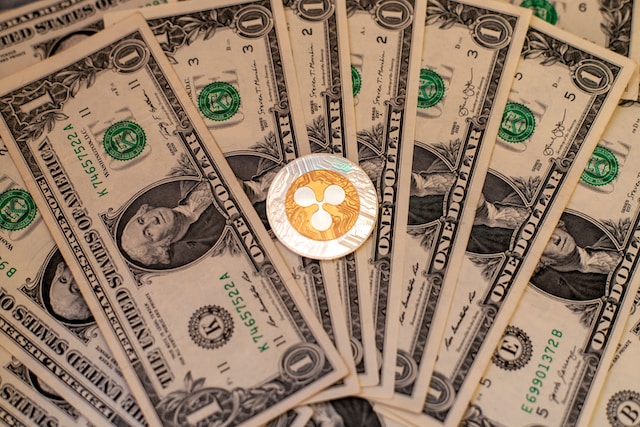
- In an illuminating discussion, Ripple expert Wietse Wind debunked misconceptions about XRP Ledger’s capabilities, clarifying its decentralized nature and dispelling claims of limited functionality.
- The conversation highlighted Ripple’s diverse features, including smart contracts and decentralized finance applications, challenging prevalent myths and showcasing its true potential.
An enlightening conversation recently transpired on X, challenging prevalent misconceptions surrounding XRP Ledger’s capabilities. A prominent Ripple expert stepped forward to rectify three common myths that have lingered in the cryptocurrency community, shedding light on the true potential of Ripple’s technology.
Are Ripple Use Cases Limited?
Critics often argue that XRP’s price stagnation compared to Bitcoin (BTC) and Solana (SOL) stems from its perceived limited use cases. Google Bard and AI chatbots have been known to suggest that Ripple falls short in functionality, particularly when compared to competitors like Ethereum and BNB Chain, which offer a broader range of functionalities such as smart contracts and decentralized finance (DeFi).
In a surprising twist, XRPL Labs founder Wietse Wind addressed this misconception on X, setting the record straight on Ripple’s capabilities. Wind’s insights challenged the notion that Ripple’s use cases are stagnant, asserting that the XRP Ledger boasts features that go beyond cross-border payments.
Three Myths About XRP Corrected
A critical discussion unfolded when a user on X.com voiced concerns about XRP Ledger’s alleged shortcomings. Wietse Wind, responding as the CTO at XRPL Labs, posed a thought-provoking question: “If you could have 5-10 things added to the XRPL, that other chains already have, what would those be?” This prompted a revealing exchange that debunked three prevalent myths.
Contrary to claims of XRPL’s centralization due to RippleNet’s API-based structure, Wind clarified that XRP Ledger operates on a decentralized model. The ledger employs a hash-based consensus mechanism through a network of trusted node validators, dispelling the notion of centralization.
Moreover, the conversation highlighted the XRP Ledger’s capacity for token issuance, programmable money, smart contracts, and decentralized finance applications (DApps), including decentralized exchanges (DEX). Wietse Wind emphasized that Ripple’s recent legal victories against the Securities and Exchange Commission (SEC) are mostly irrelevant to XRP’s intrinsic value, emphasizing the protocol’s broader capabilities.
Embracing the True Potential of Ripple
As Ripple navigates the remedies phase of its legal battle with the SEC, the cryptocurrency community is reminded of the groundbreaking features embedded in the XRP Ledger. Ripple’s commitment to innovation and dispelling misconceptions positions XRP as a formidable player in the ever-evolving cryptocurrency landscape. It’s time to embrace the truth and recognize Ripple’s true potential beyond the shadows of persistent myths.




